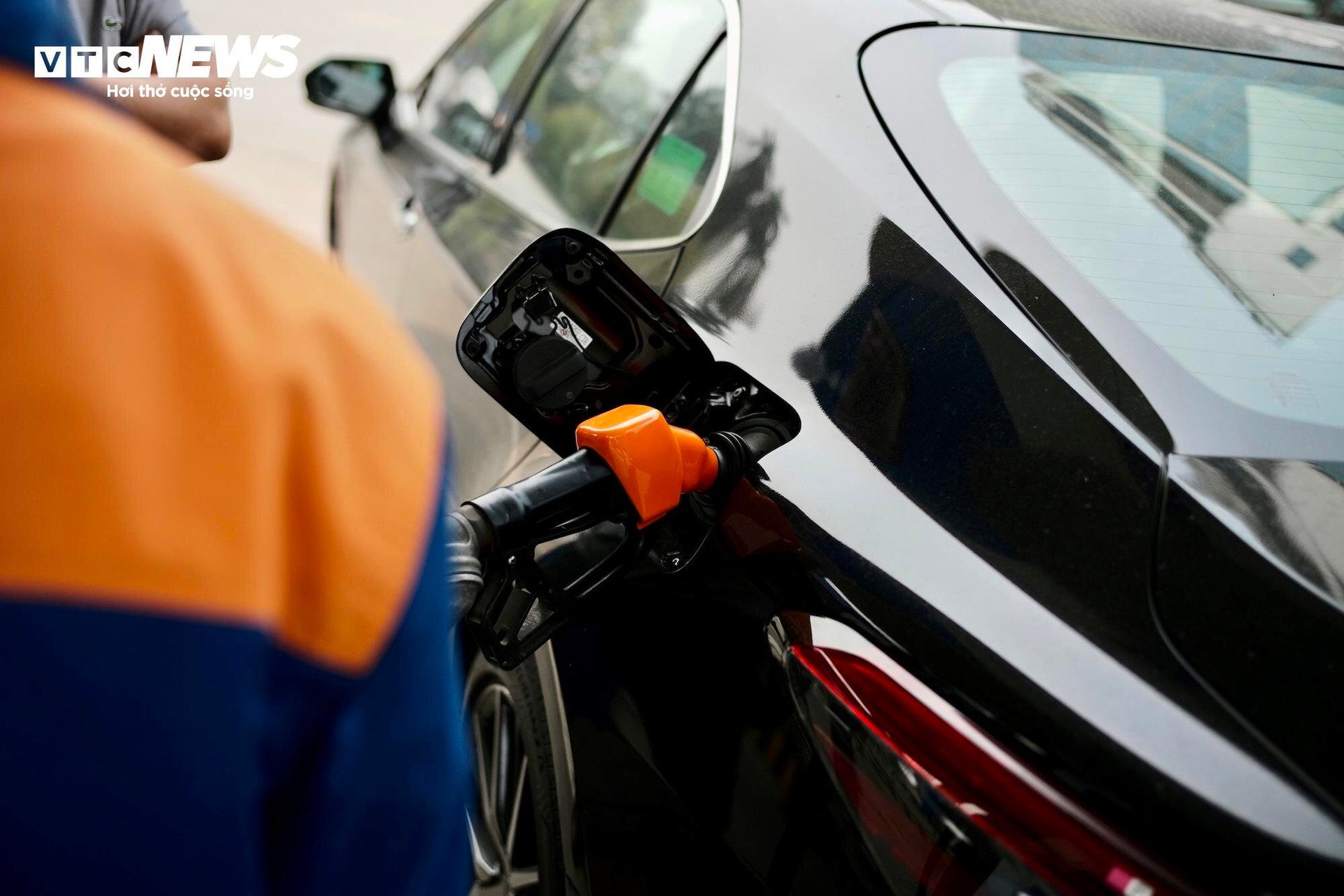There are many reasons why cars consume a lot of fuel, such as tire pressure, fuel filter, oil, etc., but they can all be fixed.

Step by step determine the cause and how to handle it according to expert instructions when encountering the phenomenon of abnormal car fuel consumption.
Nguyen Tung Anh (28 years old), a technician working at Tung Anh auto garage (Long Bien, Hanoi), pointed out some common causes and how to handle them when a car consumes unusually much fuel.
According to Tung Anh, when you encounter a situation where your car consumes unusual amounts of fuel, you should immediately check the following 6 parts:
Tires
Tires that are too worn or have lower than standard tire pressure (under-inflated tires) are one of the reasons why a car consumes more fuel after a period of use. Tires that are too worn or have low tire pressure increase the friction area between the wheel and the road surface, causing the engine to consume more fuel due to greater resistance.
How to handle: When detecting that the vehicle consumes fuel abnormally, the driver should check the tire condition, ensuring that the tire pressure is inflated according to the specified parameters, usually posted by the manufacturer on the door, on the driver's side. If the tire is found to be worn, the tire should be rotated or replaced to ensure safety.
Spark plug
Spark plugs have the task of igniting the fuel-air mixture in the combustion chamber. Over time, the quality of spark plugs will decrease due to soot and loose pins, causing slow ignition and low combustion efficiency. This causes a lot of fuel to be sprayed, causing waste.
How to handle:If you find that the spark plug is covered with soot or has loose terminals, clean it thoroughly and reinstall it tightly.
Exhaust system
During use, the vehicle's exhaust pipe may be dented due to collisions, causing the exhaust pipe to become clogged or obstructed, resulting in increased exhaust pressure and causing the vehicle to consume more fuel.
How to handle: Check the exhaust system, if the exhaust pipe is found to be clogged, you should take the vehicle to the facilities, maintenance to check, fix or replace. You should also check the fuel injector system. Because if the injector is dirty, the amount of fuel injected into the combustion chamber will not be guaranteed and can cause fuel waste.
Water tank
Insufficient coolant or poor quality also contributes to making the car consume more fuel than normal. Each car model has a coolant temperature sensor. When the coolant is not guaranteed or the sensor is faulty, it will report a lower result than the actual temperature. The amount of fuel injected into the engine will be more than normal, causing the car to consume more fuel.
How to handle: Depending on each vehicle model, users should periodically check and replace the coolant according to the manufacturer's recommendations. The coolant tank is usually located in the engine compartment, under the hood. When visually checking, make sure the coolant level in the auxiliary tank is always between the "Full" and "Low" positions, some vehicles are marked "Min", "Max". If the coolant level is below the "Low" level, more coolant needs to be added.
Air filter
The air filter has the task of filtering the air, preventing dirt before entering the combustion chamber. Over time, if the air filter is too dirty, the amount of air entering the combustion chamber will be reduced, forcing the engine to inject more fuel to ensure power generation, causing the vehicle to consume more fuel.
How to handle: You should pay attention to periodically cleaning the engine air filter system after the vehicle has operated for 5,000 km, and replace the air filter after 20,000 km. For older vehicles, often used in dusty environments, the air filter should be cleaned after 3,000 - 4,000 km and replaced after 15,000 km.
Engine oil
Engine oil that is not replaced after a period of time will reduce the effectiveness of lubrication. The friction between the parts is greater, causing the engine to heat up quickly, so the vehicle will consume more fuel than usual, over time it can reduce the life of the engine. In addition, users replace engine oil that is not up to standard, the specified viscosity also affects the engine's performance.
How to handle: Change engine oil on schedule. If you do not know the regular oil change schedule, drivers need to check the oil condition through the engine oil dipstick. In addition, you should refer to the manual or ask the vehicle manufacturer's technical experts to choose the right type of oil for your vehicle's engine.
According to VTC News